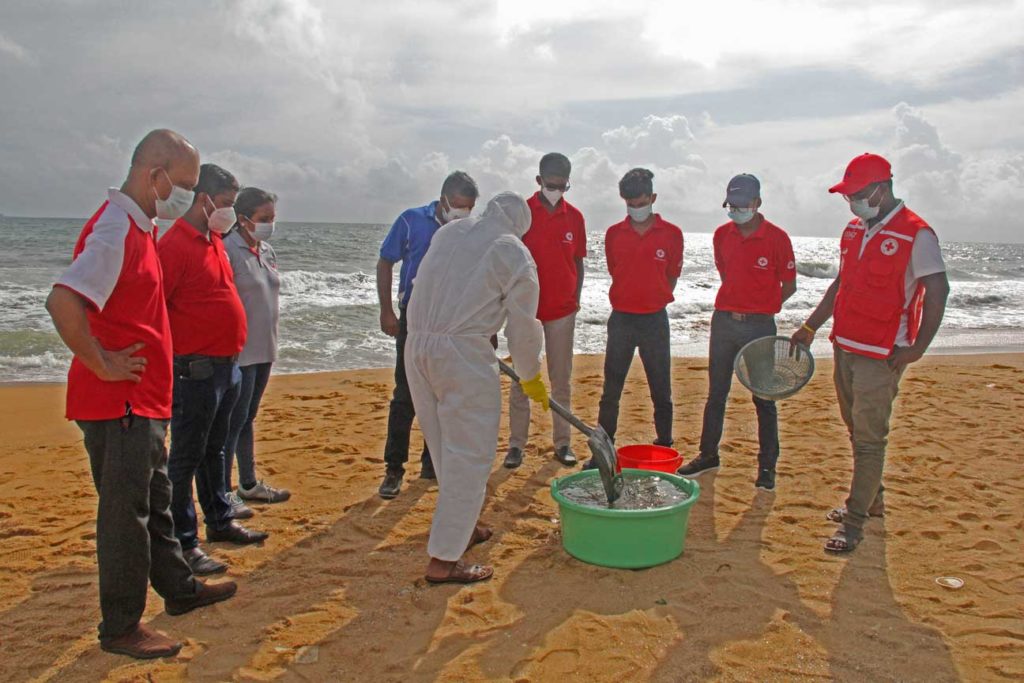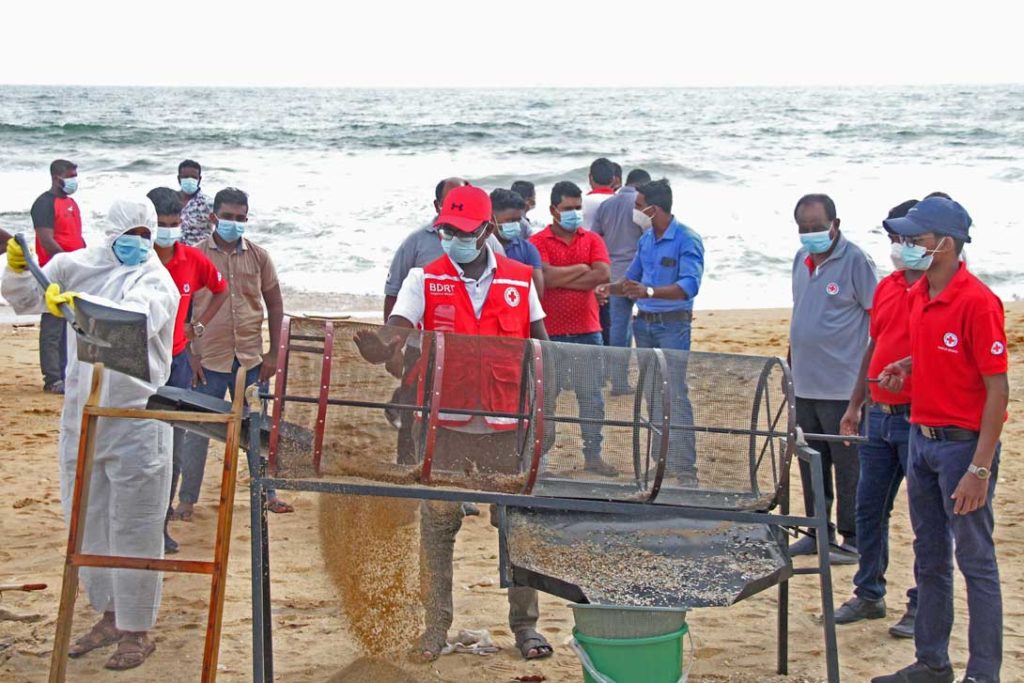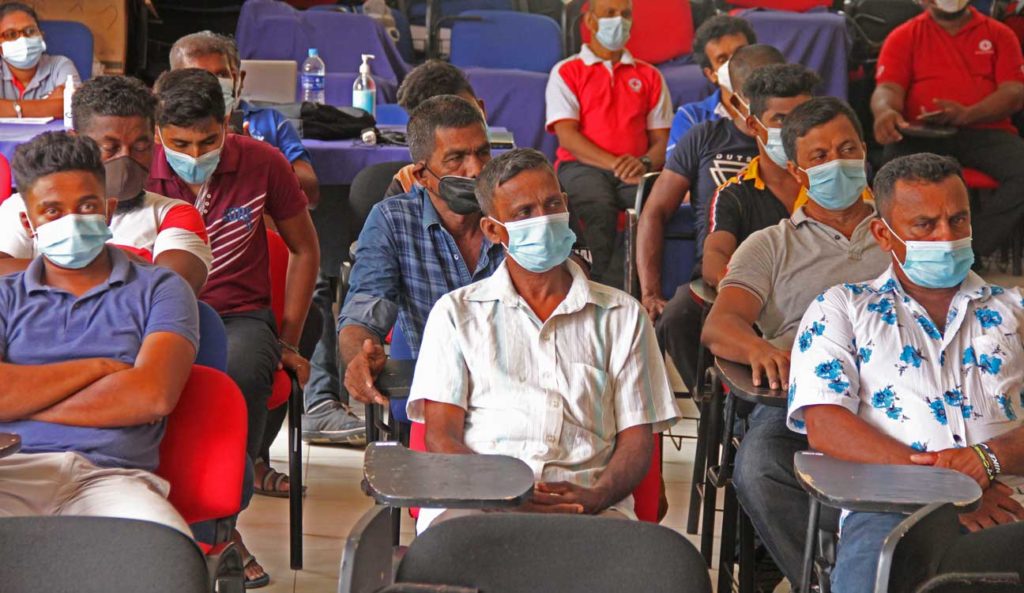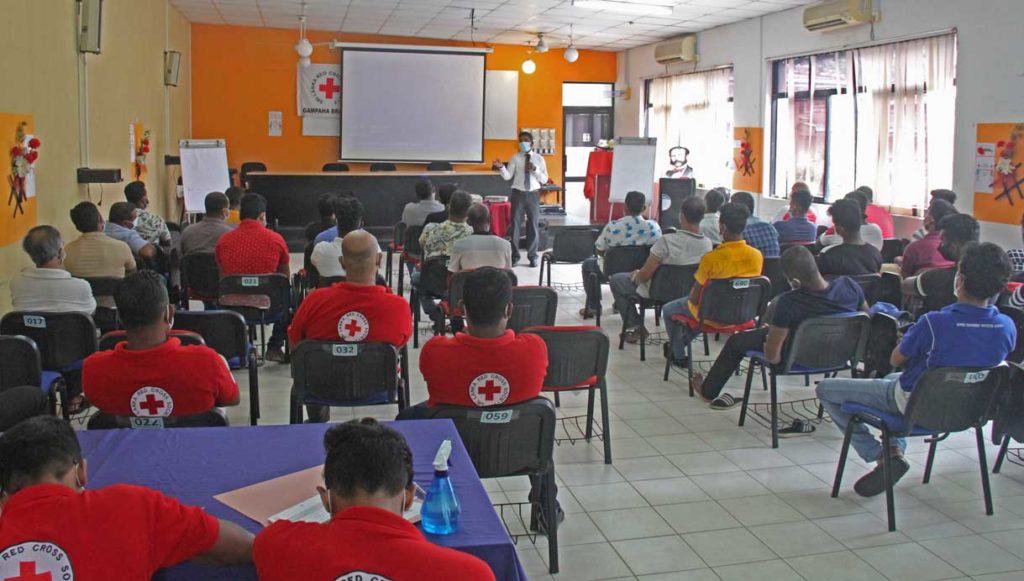Neutralizing Maritime Mayhem: The SLRCS Launches Programme to Redress Damage from Cargo Ship Fire
By Sakshi Selvanathan (08th July 2021)
The month of May 2021 was witness to a local yet gargantuan maritime disaster which dominated international media headlines for weeks afterwards: the cargo ship ‘X-PRESS PEARL’ (with little under 1500 containers onboard carrying chemically hazardous cargo) caught fire about 16 kilometers off the coast of the Colombo commercial shipping harbor on 20th May 2021. The ship continued to be engulfed in flames till the end of the month, but has since been contained owing to the efforts of the country’s tri-forces and the Indian Navy. Regardless, the fire has already succeeded in spilling approximately 3 billion tiny plastic pellets, damaged containers, chemicals and other noxious substances into the sea – adversely affecting coastlines across the districts of Colombo, Gampaha, Puttalam and Kalutara, while plastic pellets were found in abundance on the beaches of Galle, Matara and Mannar districts as well.
Consequently, and quite unsurprisingly, the Sri Lankan Marine Environment Protection Authority (MEPA) cited the maritime crisis as Sri Lanka’s worst environmental disaster in its entire history. Indeed, the resultant chemical spills and plastic pellets so visibly littering the shores, have caused massive damage to the natural marine environment and ecosystems – as jarringly demonstrated by the multiple dead sea turtles, fish and birds being washed ashore even to date as a result of the incident. Human livelihoods have not been spared either, in light of the fact that fishing was banned in the area; according to the Department of Fisheries and Aquatic Resources, more than 16,700 fishermen and their families living along the Western coastlines have been affected. The fisheries sector has already faced losses due to the COVID-19 epidemic and this maritime incident has exacerbated prospects for the livelihoods of fisher communities.
With all available evidence raising the spectre of an irresolvable environmental and economic crisis, the Sri Lanka Red Cross Society (SLRCS) has flown into action and launched a programme to address the aftermath of this disaster with the financial support of the International Federation of Red Cross and Red Crescent Societies (IFRC). In coordination with MEPA and the Sri Lanka Ministry of Fisheries, and as an initial step, the SLRCS is targeting (and has already begun implementing at the time of writing) a programme that will uplift the economic predicaments faced by the affected fisher communities in the most hard-hit districts of Colombo and Gampaha, and also help authorities to eliminate the toxic debris that has accumulated on the country’s shores.
Thus, as a primary component of the programme, 3000 small-scale fishing families in the two aforementioned districts of Gampaha and Colombo will receive cash grants through the programme in order to counteract the toll taken on their livelihoods in the last month. Additionally, and in consideration of the future impacts of the disaster on fisher communities’ means of income – and undoubtedly the marine environment itself – specifically-tailored beach cleanup campaigns will be organized and carried out by the SLRCS with immediate effect to augment the efforts of MEPA and the military to resolve the crisis. This aspect of the programme incorporates a cash-for-work component, in that the aforesaid cleanup activities will be implemented by selected members of the affected fisher communities themselves in exchange for financial compensation.
The SLRCS facilitated a training session on the beach cleanup, which was held on 03rd July 2021 in Gampaha, during which officials from MEPA conducted lectures and practical demonstrations to equip the selected individuals with the technical and safety knowledge required to handle the toxic substances that would be present when cleaning up the coastlines.
And taking into account that the above interventions will be occurring amid the third wave of the highly contagious COVID-19 epidemic, the SLRCS has taken measures to donate personal protective equipment along with other necessary tools and equipment to entities like MEPA and the military to support beach cleanup operations.




